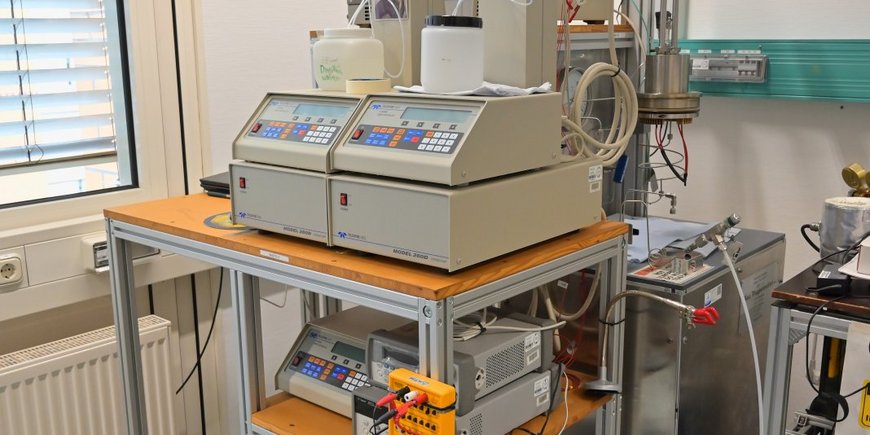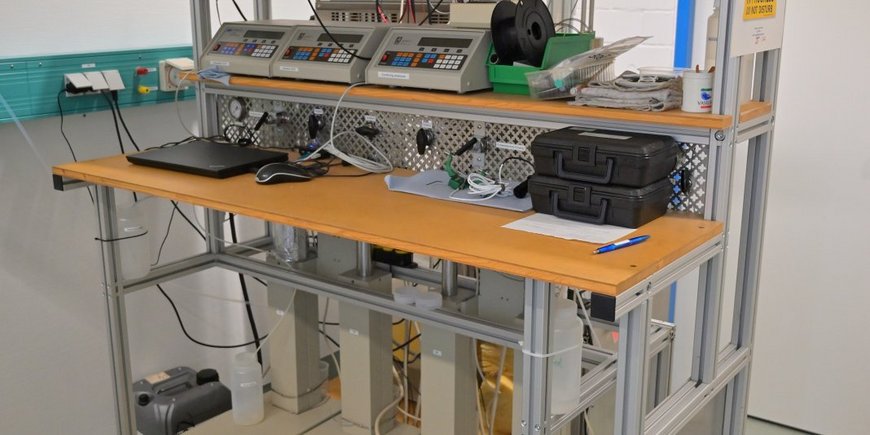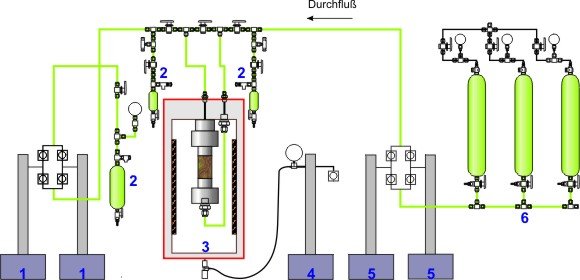Multiple Sample Production and Injection Simulator (MuSPIS)
Experimental task:
Controlled long-term investigations on the permeability evolution of sedimentary rocks at simulated pressure- and temperature conditions pertinent to geothermal reservoirs.
Experimental set-up:
The investigations are performed in a set of two apparatuses that allow a variety of continuous petrophysical measurements at a maximum temperature, lithostatic- and pore pressure of 200 °C, 140 and 50 MPa, respectively. The typical flow rate is 15 ml/h and the anticipated run duration will be at least four weeks.
By measuring the permeability of the rock as well as the electric conductivity and pH of the pore fluid one obtains an information about the dynamics of fluid-rock interactions. In addition, so induced changes in ultra-sonic p- and s-wave velocities and the specific electric resistance are continuously monitored during an experiment.
The whole fluid system including the fluid reservoir can be heated and pressurized. Stabilized fluids containing dissolved gases can thus be used and investigated as well.
Finally, by fluid production from one rock sample and injection into a second one, a geothermal reservoir fluid cycle can be simulated at the laboratory scale.





